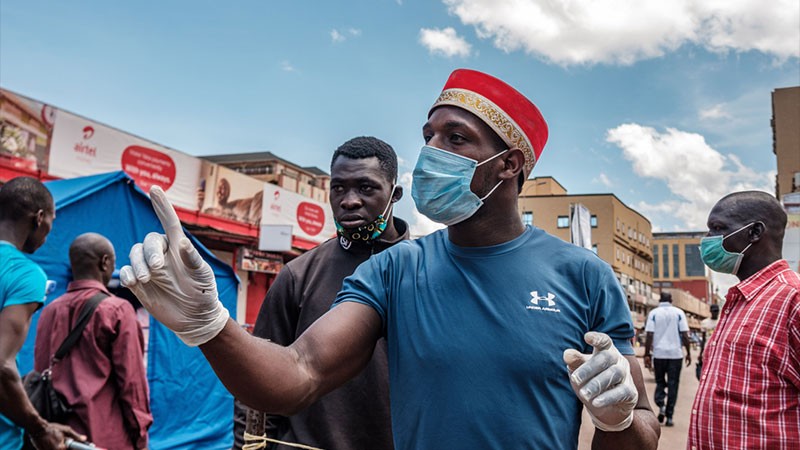The need for accessing public information during crisis exists at every step, regardless of the severity it may have on the people. Governments often have vital information that members of the public need to make crucial decisions concerning their lives. Such information must, therefore, be disseminated promptly and as completely and accurately as possible. It’s no wonder that the need for the recognition of citizens’ access to public information gained momentum immediately after a global crisis-World War II!
The right to information during crises has always implicitly existed under Article 19 of the Universal Declaration of Human Rights, which provides the right to “freedom of opinion and expression; this right includes freedom to hold opinions without interference and to seek, receive and impart information and ideas through any media and regardless of frontiers.”[1]
The U.N Secretary-General Antonio Guterres recently warned that the world faces the most challenging crisis since World War II — one that is killing people, spreading human suffering, and upending people’s lives. And that the magnitude of our response must match the scale of the crisis.[2]
Why is access to information during crises significant?
Whether it is during economic or health crisis or armed conflict, access to information is critical to decision-making. In the case of health crises like Ebola or COVID-19, timely access to information is essential in preventing infections and their management. People need to know how they can protect themselves from catching a disease or spreading it to family and loved ones.
Accurate information is needed to enable decision-makers to make the right decisions on time. Timeous decision-making can, therefore, save lives and money. A delay or wrong decision could negatively impact thousands if not millions. This issue has been demonstrated during the COVID-19 outbreak where countries that made timely decisions like New Zealand were less affected as compared to, for example, the United States and Spain, which delayed.
During major crises, the risk of corruption and mismanagement is very high, and the impact of such can be catastrophic; yet accountability mechanisms like other aspects of public life have most of the time been affected by the crises. In Nigeria, millions of dollars allocated to fight Boko haram terrorism were diverted, leading to the arrest of the National Security Advisor in 2015. In 2018, the U.N found that billions of shillings of aid meant for refugee settlement had been stolen in Uganda and more recently, senior officials in the Office of the Prime Minister were arrested for allegedly inflating prices of relief food. Access to information facilitates citizens to hold authorities accountable for their decisions and actions.
One of the significant characteristics of pandemics and other crises is that they are multisectoral, multidimensional and dynamic. An effective response requires a multi-stakeholder approach with strong coordination and free flow of information. If any of the stakeholders lack timely access to information, a chain of failures will be triggered with severe consequences for addressing the crisis.
In the new age of misinformation, fake news and broader reach of the internet, communities could either be alarmed or set of fire if there is no timely access to accurate information.
The Paradox
Despite the importance of citizens’ access to information, 30 African countries are yet to enact and implement national laws promoting citizens’ access to information. Even the 24 countries with these laws struggle with implementation. This is although the Sustainable Development Goals Framework under SDG 16.10.2 recognise and call for all Member States to adopt and implement access to information laws. This same call is replicated in African Union treaties including the African Charter on Human and Peoples’ Rights, the African Charter on Democracy, Elections and Governance, the African Union Convention on Preventing and Combating Corruption, the African Charter on Values and Principles of Public Service and Administration, African Youth Charter and the African Charter on Statistics.
The Call
- Access to information is not a choice but an issue that governments must urgently take decisions on to prevent infections or death of citizens. It is urgently needed to combat crises, promote the wise use of limited resources allocated for managing crises.
- It is also crucial that the United Nations agencies like the World Health Organisations, UNDP, UN Women and UNICEF take urgent measures to work with member states to prevent death by making access to information during crises central to responses.
- The African Union should urgently engage member states to ratify treaties that recognise citizens access to information and domesticate them by adopting and effectively implementing respective national access to information laws.
[1] Harvard Humanitarian Initiative; The signal code: A human Rights Approach to Information During Crisis
[2] The New York Times; https://www.nytimes.com/aponline/2020/03/31/world/ap-un-virus-outbreak-united-nations-1st-ld-writethru.html




